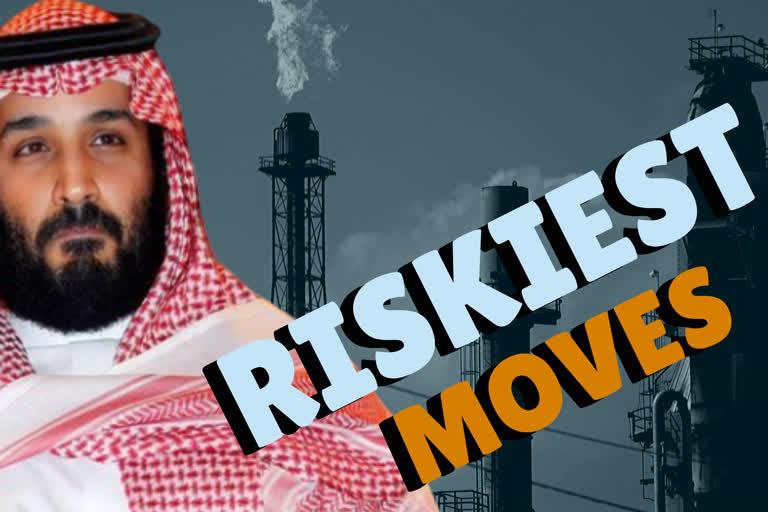Dubai:Saudi Arabia’s Crown Prince Mohammed bin Salman is behind the kingdom's boldest and riskiest moves in decades, most recently shutting down Islam's holiest sites to pilgrims to stymie the spread of a new virus and the government's decision to slash oil prices in what analysts believe has sparked a price war with major producer Russia.
Read also:Saudi arrests royal family members for allegedly plotting coup
As his father's favoured son, the 34-year-old prince oversees nearly every major aspect of the country’s defence, economy, internal security, social reforms and foreign policy. With no deputy, he is the only foreseeable heir to the crown and its absolute powers.
Read also:Steepest fall in crude oil price since 1991 Gulf War
The prince's headline-grabbing path to power has been paved with controversy, conflict and combat. Here are some of Prince Mohammed's riskiest gambles:
Reforming The Kingdom
Royal decrees to lift the ban on women driving and allowing women to obtain a passport and travel abroad without male permission mark the most significant advancement for women’s rights in the kingdom. These decisions have largely eroded key parts of male guardianship laws and curtailed powers of the once-feared ultraconservative religious police.
They also opened an era of broader social liberalization in the kingdom. Prince Mohammed has permitted concerts, allowed movie theatres to open and removed gender-segregated barriers separating single men from women in restaurants and cafes. Other key reforms included allowing girls to play sports in government-run schools and allowing all women into sports stadiums as spectators.
The decisions are part of the prince's efforts to transform the kingdom economically in the face of lower oil prices and a burgeoning youth population. His brashness on other fronts, however, has rattled foreign investors, and his efforts to diversify away from oil face steep challenges.
Jailing Critics
At the same time, he has launched far-reaching crackdowns on perceived critics. The prince was widely criticised around the world for the killing of Saudi dissident and Washington Post columnist Jamal Khashoggi by agents who worked for him. The prince insisted that he had no knowledge of the operation. No senior officials have been held responsible.
Dozens of critics in Saudi Arabia are jailed or facing trial, including women's rights activists who said that they have been tortured, as well as human rights activists, clerics, writers and academics.
